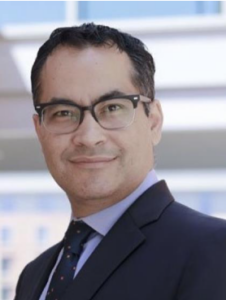 Webex Link: http://s.uconn.edu/meseminarf90
Webex Link: http://s.uconn.edu/meseminarf90
Abstract: Engineered materials that integrate advances in polymer chemistry, nanotechnology, and biological sciences have the potential to create powerful medical therapies. Dr. Khademhosseini’s group is interested in developing ‘personalized’ solutions that utilize micro- and nanoscale technologies to enable a range of therapies for organ failure, cardiovascular disease and cancer. In enabling this vision he works closely with clinicians (including interventional radiologists, cardiologists and surgeons). For example, he has developed numerous techniques in controlling the behavior of patient-derived cells to engineer artificial tissues and cell- based therapies. His group also aims to engineer tissue regenerative therapeutics using water-containing polymer networks called hydrogels that can regulate cell behavior. Specifically, he has developed photo-crosslinkable hybrid hydrogels that combine natural biomolecules with nanoparticles to regulate the chemical, biological, mechanical and electrical properties of gels. These functional scaffolds induce the differentiation of stem cells to desired cell types and direct the formation of vascularized heart or bone tissues. Since tissue function is highly dependent on architecture, he has also used microfabrication methods, such as microfluidics, photolithography, bioprinting, and molding, to regulate the architecture of these materials. He has employed these strategies to generate miniaturized tissues. To create tissue complexity, he has also developed directed assembly techniques to compile small tissue modules into larger constructs. It is anticipated that such approaches will lead to the development of next-generation regenerative therapeutics and biomedical devices.
Biographical Sketch: Ali Khademhosseini is currently the CEO and Founding Director at the Terasaki Institute for Biomedical Innovation. Previously, he was a Professor of Bioengineering, Chemical Engineering and Radiology at the University of California-Los Angeles (UCLA). He joined UCLA as the Levi Knight Chair in November 2017 from Harvard University where he was Professor at Harvard Medical School (HMS) and faculty at the Harvard-MIT’s Division of Health Sciences and Technology (HST), Brigham and Women’s Hospital (BWH) and as well as associate faculty at the Wyss Institute for Biologically Inspired Engineering. At Harvard University, he directed the Biomaterials Innovation Research Center (BIRC) a leading initiative in making engineered biomedical materials. Dr. Khademhosseini is an Associate Editor for ACS Nano. He served as the Research Highlights editor for Lab on a Chip. He is on the editorial boards of numerous journals including Small, RSC Advances, Advanced Healthcare Materials, Biomaterials Science, Journal of Tissue Engineering and Regenerative Medicine, Biomacromolecules, Reviews on Biomedical Engineering, Biomedical Materials, Journal of Biomaterials Science-Polymer Edition and Biofabrication. He received his Ph.D. in bioengineering from MIT (2005), and MASc (2001) and BASc (1999) degrees from University of Toronto both in chemical engineering.